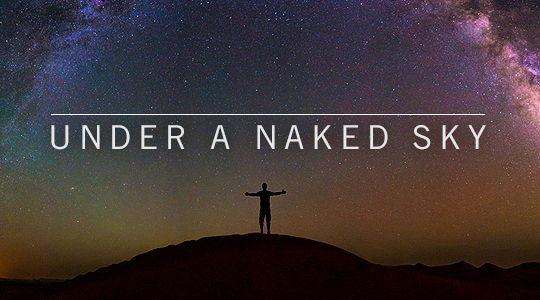Disposable Identities?
By Scott Hughes

“Speaking to North Americans about consumerism is like talking to fish about water. It is an all-encompassing part of our daily existence and usually too close for us to even notice its pervasive presence.”1
My formal religious education makes me notice certain inconsistencies. For example, I had a hard time restraining myself from pointing out the hypocrisy of a conservative Christian school that provided a yoga class for its teachers. These same teachers who “find the devil under every rock” made no connection with the Buddhist and Hindu roots of yoga. The school had ignored the religious substance of yogic practice, focusing instead on the health benefits.
Another time, I purchased a Lego Advent Calendar for my kids. It’s a calendar that has legos to build for each day leading up to Christmas Day. However, it really lacks any element related to the season of Advent. So it was a calendar; but Advent calendar, not really.
The voices of our culture have created a situation where identity formation often happens without close networks of external support and inherited practical wisdom. Consumerism has taken advantage of this vacuum, Vincent J. Miller observes in his book, Consuming Religion. A specific drawback of consumerism is that it disconnects producer and product. For example, we might purchase a bag of apples from our local grocery without investigating or even caring about who produced it, under what conditions it was produced, or the environmental costs of delivery to the place we purchased it. This is the way we consume most of our food, clothing, insurance, and other goods.
What is true of consumer goods holds true for our identity formation as well. Miller concludes, “Consumption has become the major means by which people establish, maintain, and communicate their personal and social identities.”2 With that same consumerist mindset deeply ingrained, we can falsely separate beliefs and practices. Now even identities can be as disposable as the brands we wear. I saw someone’s Twitter description read, “I knew who I was this morning, but I have changed several times since then.”
Reflection Questions for Individuals:
- What are some of your favorite brands? Why are they your favorites?
- How does your perception of yourself come from what you do (role, function, job)?
Reflection Questions for Church Leaders:
- “Identity formation takes place in every phase of the life span, but it has particular poignancy in emerging adulthood, when the previous bulwarks of identity – families, schools, churches, and friends – may no longer be present.”3 How can churches help emerging adults live into the tension of their beliefs and life practices?
- “The first key to spiritually mastering the midlife transition is to detach somewhat from identifying one’s value with one’s accomplishments.”4 How do we as church leaders help midlife adults realize their identity is broader than their functions and accomplishments?
- Some midlife adults have transitioned to being “empty nesters.” How can churches minister to those in this life stage?
1 Carlson, Kent & Lueken, Mike. Renovation of the Church: What Happens When a Seeker Church Discovers Spiritual Formation. (Downers Grove: Intervarsity, 2011), 66.
2 Miller, Vincent J. Consuming Religion: Christian Faith and Practice in a Consumer Culture. (New York: Continuum, 2003), 49.
3 Setran, David P. & Kiesling, Chris. Spiritual Formation in Emerging Adulthood: A Practical Theology for College and Young Adult Ministry. (Grand Rapids: Baker Academic, 2013), 79.
